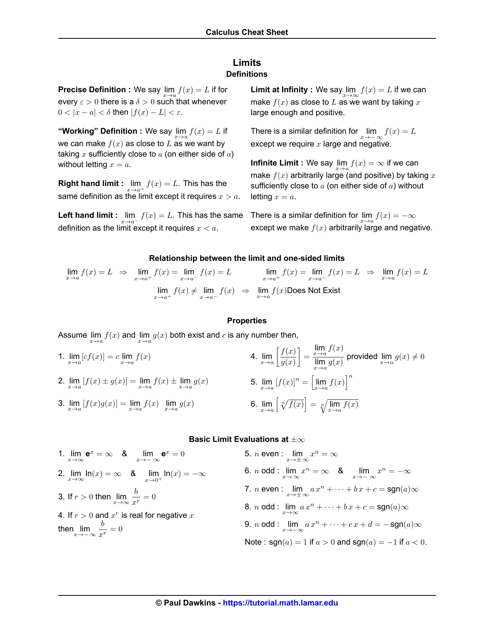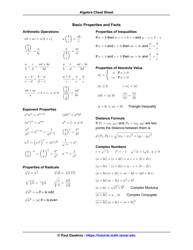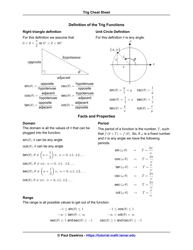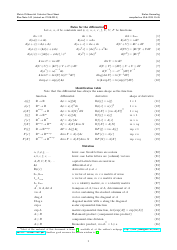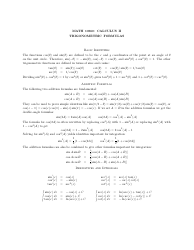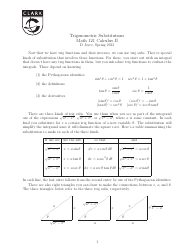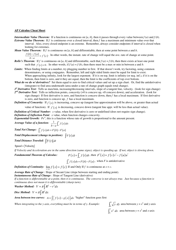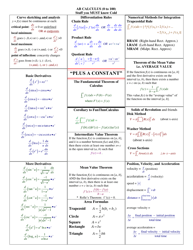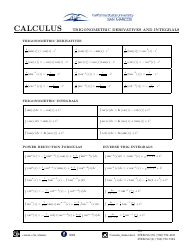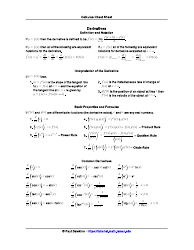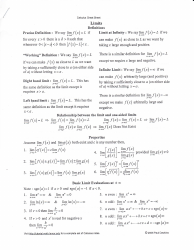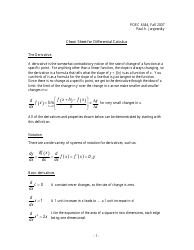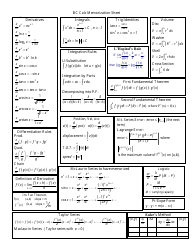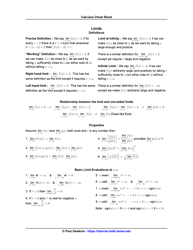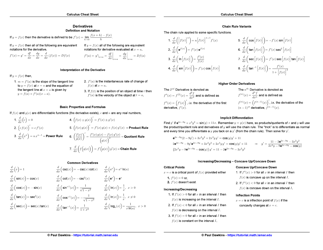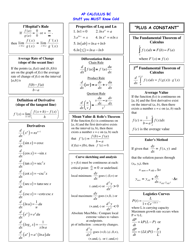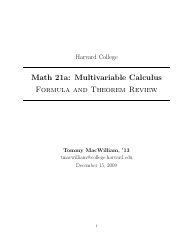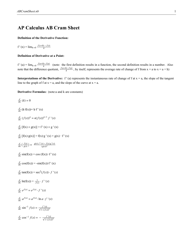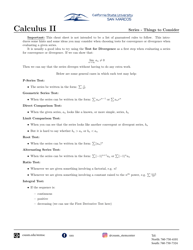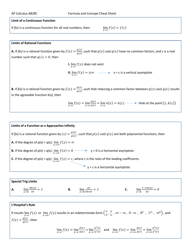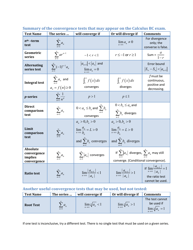Calculus Cheat Sheet - Paul Dawkins
The Calculus Cheat Sheet by Paul Dawkins is a resource that provides a condensed summary of key concepts and formulas in calculus. It is helpful for students studying calculus as a reference guide or study aid.
FAQ
Q: What is calculus?
A: Calculus is a branch of mathematics that deals with rates of change and accumulation.
Q: What are the two main branches of calculus?
A: The two main branches of calculus are differential calculus and integral calculus.
Q: What is differential calculus?
A: Differential calculus focuses on studying rates of change and slopes of curves.
Q: What is integral calculus?
A: Integral calculus deals with the accumulation of quantities and finding areas under curves.
Q: What are some key concepts in calculus?
A: Some key concepts in calculus include limits, derivatives, and integrals.
Q: What is a limit?
A: A limit is the value that a function approaches as the input approaches a certain value.
Q: What is a derivative?
A: A derivative measures the rate of change of a function at a specific point.
Q: What is an integral?
A: An integral calculates the accumulation of a function over a range.
Q: How is calculus used in the real world?
A: Calculus is used in many fields such as physics, engineering, economics, and computer science to model and solve real-world problems involving rates of change and accumulation.
Q: Are there any calculus formulas or rules?
A: Yes, there are many formulas and rules in calculus, such as the power rule, chain rule, and fundamental theorem of calculus.
